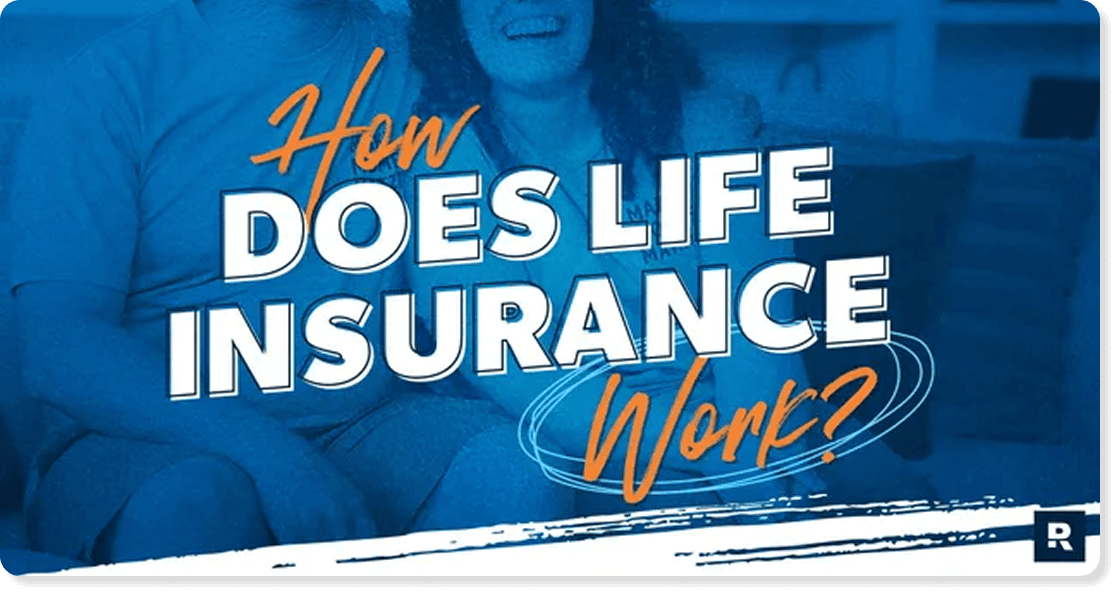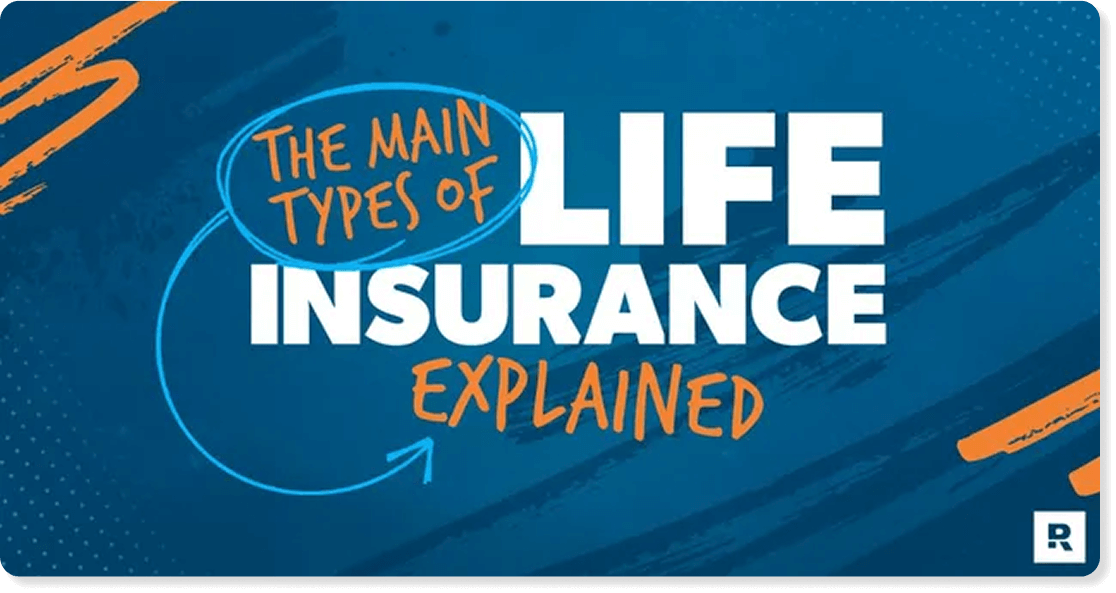
Life insurance has one job: to replace your income if you die. It’s not about investing or building cash value. It’s about protecting the people you love if the worst happens.
On This Page:
- How Does Life Insurance Work?
- Do you Really Need Life Insurance?
- Main Types of Life Insurance
- Why We Only Recommend Term Life Insurance
- How to Buy Life Insurance
- When to Buy Life Insurance
- What’s the Right Amount of Term Life Insurance for You?
- What does Term Life Insurance Cost?
- How Life Insurance Payouts Work?
- Frequently Asked Questions
- Trending Articles

How Does Life Insurance Work?
Life insurance pays your family a lump sum if you die—so they can cover the bills and stay financially stable without your income. But not all types are created equal.
We only recommend term life insurance. Why? Because it’s simple, affordable coverage with no gimmicks. You pay a set amount each month for a specific amount of time, usually 10–30 years. If you die during that time, your family gets a payout to help cover everyday expenses.
But how do you know if you need life insurance? And how do you make sure you’re getting the right kind of coverage? Let’s walk through it, step by step.
Do You Really Need Life Insurance?
If someone depends on your income, you need life insurance. That could be your spouse, your kids or even aging parents who rely on you for support. Life insurance isn’t just for parents or homeowners—it’s for anyone who wants to make sure their loved ones aren’t left in a financial mess if the unthinkable happens.
You won’t need life insurance forever. But if someone depends on your paycheck today, it’s one of the smartest ways to protect them—plain and simple.

Main Types of Life Insurance
There are a lot of life insurance options out there—variable life, family life, indexed universal, final expense . . . the list goes on.
But no matter what they’re called, they all fall into two main types: whole life (which tries to mix insurance with savings and ends up costing way more than it’s worth) and term life (which is simple and affordable and actually does what life insurance is supposed to do—replace your income if you die).
Let’s cut through the confusion so you can see why term life insurance is the only kind of life insurance we recommend.
Why We ONLY Recommend Term Life Insurance
Term life insurance is simple and affordable, and it does exactly what it’s supposed to do—protect your family if the worst happens. For about the price of a monthly family pizza night, your loved ones can stay financially secure if your income suddenly disappears.
Whole life? It’s overpriced, overcomplicated, and sold as an “investment,” but it doesn’t deliver. Like Dave says, it’s the payday lender of the middle class—high premiums, lousy returns, and a lot of smoke and mirrors.
Your income is your biggest financial asset. Don’t waste it on bad insurance and bad investments. Term life gives you solid coverage while you get the kids through college, pay off debt, and build wealth. After that, you don’t need life insurance at all. That’s the goal.
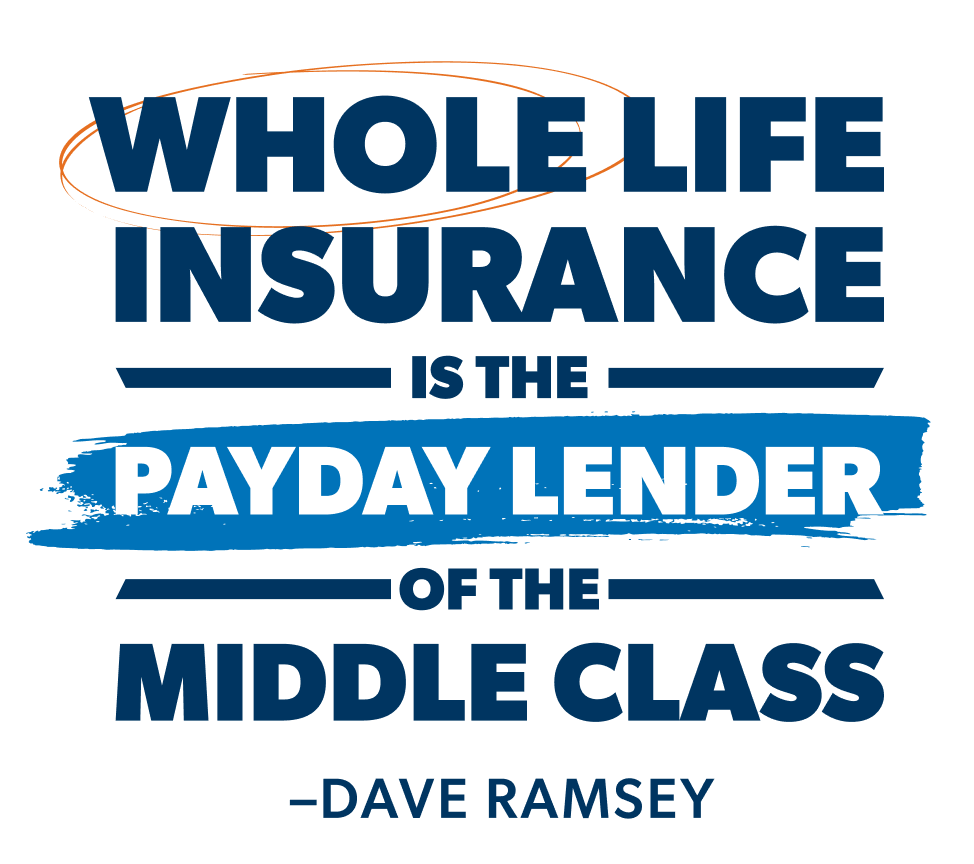
How to Buy Life Insurance
Buying life insurance doesn’t have to be complicated. Sure, the industry can make it feel confusing on purpose—with all the policy types, fine print and sales pressure. But when you stick to term life insurance, the process is actually pretty simple.
From choosing the right coverage amount to picking a trustworthy provider, we’ll walk you through every step so you can make a smart decision with confidence.
When to Buy Life Insurance
Life Insurance isn’t a Baby Step. If you’ve got a spouse, kids or anyone who depends on your income—it’s time to buy life insurance. The younger and healthier you are, the cheaper it is.
So don’t wait. Life insurance is one of the smartest financial decisions you can make today.
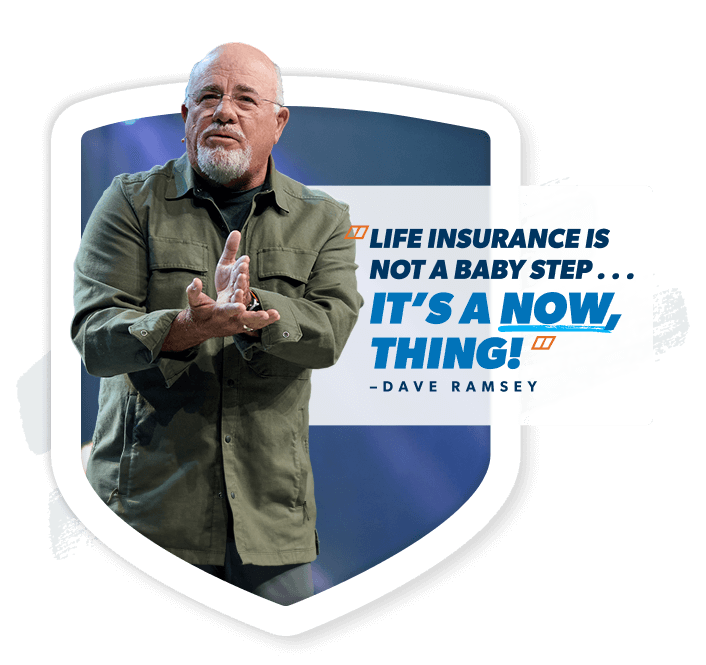
What’s Right Amount of Term Life Insurance for you?
Wondering how much life insurance you actually need? We recommend getting a term life policy covering 10–12 times your annual pretax income to make sure your family is fully protected.
But what does that actually look like for you? Use this simple calculator to find out. It’s a quick way to get a clear estimate—so you can take the next step with confidence.
What Does Term Life Insurance Cost?
Wondering how much term life insurance might cost you? Your age, health and coverage amount all play a role in determining the cost—but it might be more affordable than you think.
Use this quick tool to see what your policy might cost. It’s a simple first step toward getting the right coverage in place.
Monthly Estimate
0 - 0
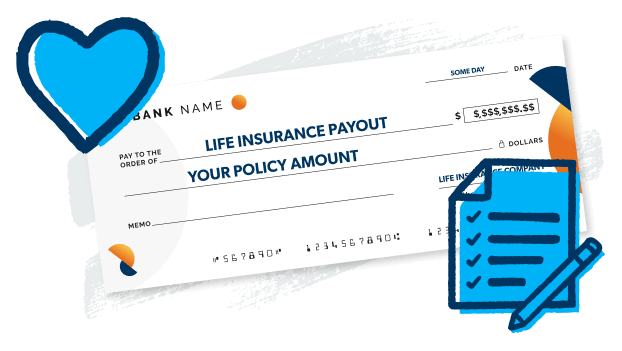
How Do Life Insurance Payouts Work
Losing someone you love is hard enough—the last thing your family should worry about is money. That’s why life insurance exists. If you pass away during the term of your policy, your family receives a payout they can use for whatever they need—whether that’s covering the mortgage, paying off debt, or just keeping life steady during a really hard time.
Most payouts are processed quickly. As long as the claim is filed properly and the policy is active, the money typically arrives within a few weeks.
Life insurance won’t take away the pain of losing you. But it can ease the financial burden and give your loved ones the space to grieve without added stress.

Who Are RamseyTrusted Pros?
RamseyTrusted pros are your trusted guides to insurance—vetted experts who have your best interests at heart. They’ll shop the insurance market to find discounts and deals for you at no extra cost, saving you time and money. And when it comes to protecting what matters, they make sure you’ve got the coverage you need—and nothing you don’t.
Frequently Asked Questions
-
What life insurance terms should I know?
-
Does googling life insurance feel like sitting down for an exam you forgot to study for? Don’t worry—life insurance isn’t as complicated as calculus. You only need to know a few common terms to really understand how life insurance works:
- Death benefit: the life insurance payout, or money given out when you die
- Beneficiaries: the people you choose to receive the death benefit of your policy, like your spouse or children, but it can be anyone you name.
- Claim: a formal request to the life insurance company to receive the death benefit
- Insured: the person who is insured (see? some of these terms make sense!)—their death causes the insurance company to pay out the death benefit
- Policy: the contract between you and the insurance company
- Premiums: the monthly or yearly payments you make to keep the life insurance policy active
- Policyholder: the owner of the policy, which is normally you (the one insured), but you could also buy a policy for another person
-
What are the best life insurance companies?
-
One of the smartest things you can do when shopping for life insurance is to check a company’s AM Best rating. That score shows how financially strong an insurance company is when it comes to paying claims. (An A+ rating is the gold standard.)
But let’s be real—comparing policies on your own can get overwhelming fast. That’s why we recommend working with our RamseyTrusted® provider Zander Insurance. They know the industry and can help you cut through the noise to find the right company for your situation. -
Why should I trust the RamseyTrusted provider Zander Insurance?
-
Whenever you see the RamseyTrusted shield, that means the individual or company—like Zander Insurance—follows Ramsey’s financial principles and is fully vetted. The folks at Zander know their job is to serve—not sell. They’ve earned our trust, and we make sure they keep it through an ongoing relationship. That’s the only way to get our seal of approval.

